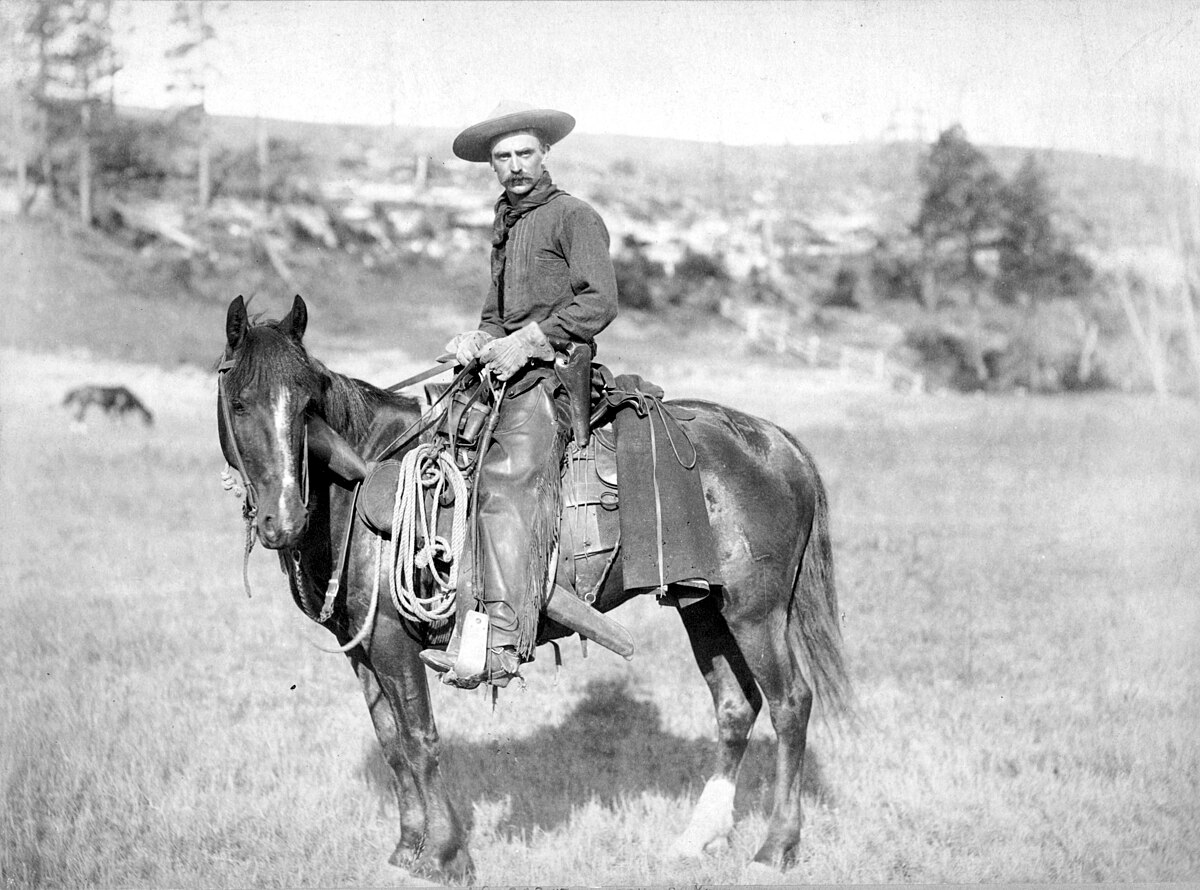
The theatrical world and its vast audiences mourn the passing of Jack Betts, a character actor whose career spanned decades, traversing the illustrious stages of Broadway to the burgeoning landscape of television and the silver screen. Betts, a familiar face to generations of viewers through nearly a hundred film and television credits, died peacefully in his sleep on June 19, 2025, at his home in Los Osos, California. He was 96.
His passing marks the end of a remarkable journey, one characterized by an unwavering dedication to his craft and a versatility that allowed him to inhabit a wide array of roles. From the debonair leads of early television to the gritty anti-heroes of Italian Westerns, and from the intricate narratives of daytime dramas to memorable cameos in blockbuster films, Betts left an indelible mark. His nephew, Dean Sullivan, confirmed the news to The Hollywood Reporter, highlighting a life lived fully within the public eye, yet with a carefully guarded personal sphere.
This retrospective delves into the defining chapters of Jack Betts’ professional life, offering an in-depth look at the experiences that shaped him as an actor and the roles that resonated most deeply with audiences and critics alike. We explore the foundational influences of his youth, the rigorous training that honed his talent, and the diverse opportunities that allowed him to showcase his exceptional range, painting a comprehensive portrait of a distinguished career.

1. **Early Life and Formative Years: The Journey from Jersey City to Miami and the Stage’s Call**Born Jack Fillmore Betts on April 11, 1929, in Jersey City, New Jersey, his early life provided the initial seeds of what would become a celebrated acting career. He was said to be related to the 13th U.S. president, Millard Fillmore, a detail that hints at a lineage as rich as his professional narrative. His childhood in Jersey City laid the groundwork for a life that would eventually lead him across the country and into the heart of the entertainment industry.
At the age of 10, Betts and his family made a significant move to Miami, Florida, a change that would further shape his burgeoning interests. It was here, in the vibrant cultural milieu of Miami, that his passion for acting truly ignited. The inspiration for his chosen path came vividly to him after witnessing Laurence Olivier in the 1939 film *Wuthering Heights*, a powerful cinematic experience that galvanized his ambition to become an actor.
His educational pursuits naturally followed this newfound passion. After graduating from Miami Senior High School, Betts enrolled at the University of Miami, dedicating his studies to theatre. This academic foundation was crucial, providing him with the theoretical knowledge and practical experience necessary to embark on a professional acting career. His time at the university was not merely theoretical; he actively participated in productions, even appearing in the Moss Hart play *Light Up the Sky*, which notably took him to Cuba, offering an early taste of performing beyond American borders.
These early experiences, from his childhood influences to his formal theatrical education, were pivotal in crafting the actor Jack Betts would become. They instilled in him a profound appreciation for storytelling and the dedication required to master the craft, setting the stage for his eventual move to New York and the demanding world of professional theatre.

2. **Broadway’s Footlights and The Actors Studio: A Foundation in Theatrical Excellence**Betts’ ambition led him to New York, the undeniable epicenter of American theatre, where he quickly made his mark on Broadway. His debut came in 1953, with a small but significant role in *Richard III*, starring the acclaimed José Ferrer. This initial foray into Broadway signaled the beginning of a lifelong commitment to the stage, showcasing his talent in one of the industry’s most prestigious arenas.
The pursuit of excellence in acting also led Betts to the renowned Actors Studio. His path to this esteemed institution was serendipitous; while working at a lamp factory, a friend asked him to perform a scene for her Actors Studio audition. This impromptu performance caught the attention of Lee Strasberg, the legendary acting teacher, who awarded Betts a three-year scholarship. This pivotal opportunity allowed him to refine his skills under the guidance of some of the most influential figures in method acting.
His dedication and talent earned him a permanent place at the Actors Studio, where he became a member and participated in significant productions. Notably, Elia Kazan, another towering figure in American theatre and film, cast him in a production of *Cat on a Hot Tin Roof*. This exposure to such high-caliber talent and rigorous training provided Betts with a deep understanding of character development and performance nuance, skills he would carry throughout his extensive career.
Betts’ Broadway career also saw him return for further notable productions, including Kazan’s 1959-60 staging of Tennessee Williams’ *Sweet Bird of Youth*. Later, he held a significant role in the 1977-80 revival of *Dracula*, portraying Dr. Seward. A career highlight, he recalled, was stepping in as the count himself, albeit only once, as Raul Julia’s standby. These experiences underscored his versatility and commitment to live performance, solidifying his reputation as a capable and dedicated stage actor.

3. **From Stage to Screen: Early Television and Film Breakthroughs that Marked His Arrival**Transitioning from the stage, Jack Betts soon found himself making his mark in the burgeoning worlds of film and television. His big-screen debut occurred in 1959 with *The Bloody Brood*, a Canadian thriller where he played Cliff, an ordinary man investigating the murder of his younger brother, starring alongside Peter Falk. This role provided his first opportunity to bring his stage-honed skills to the cinematic medium.
However, it was television that truly provided Betts with widespread recognition and a platform for his talent. From 1960 to 1962, he portrayed Chris Devlin in the CBS mystery series *Checkmate*, created by Eric Ambler. Starring alongside Anthony George, Sebastian Cabot, and Doug McClure, Betts’ portrayal of Devlin in this popular series brought him into American homes and established him as a television presence, showcasing his ability to deliver engaging performances in a serialized format.
Following his success on *Checkmate*, Betts continued to accumulate significant television credits, solidifying his status as a reliable and in-demand actor. From 1963 to 1965, he took on the role of Dr. Ken Martin in the popular daytime drama *General Hospital*. His work in these early television series demonstrated his adaptability across genres, from mystery to medical drama, and laid the groundwork for an enduring career on the small screen, making his face recognizable to a growing national audience.
These initial breakthroughs in film and television were crucial steps in Betts’ career trajectory, moving him beyond the footlights of Broadway and into the broader reach of electronic media. They allowed him to experiment with different acting styles and reach a wider audience, preparing him for the diverse roles that would define his professional journey in the decades that followed.

4. **The Prolific World of Daytime Drama: Jack Betts’ Enduring Presence in Soap Operas**Jack Betts cultivated a particularly extensive and noteworthy career within the realm of daytime television, becoming a familiar and respected figure across numerous soap operas. His consistent presence in these long-running series showcased his ability to develop complex characters over extended periods, a skill highly valued in the demanding world of daily serialized drama. His contributions to the genre were significant and spanned many years.
Among his memorable soap opera roles, Betts portrayed Dr. Ken Martin in *General Hospital* from 1963 to 1965, a role that resonated with a dedicated fan base. He also appeared as Mr. Fisher, an 80-year-old man, on *One Life to Live* in 1982, demonstrating his ability to convincingly portray characters of various ages and complexities. Later, from 1979 to 1985, he returned to *One Life to Live* as Llanview Hospital doctor Ivan Kipling, further cementing his place in the show’s lore.
Betts’ soap opera résumé was notably comprehensive, encompassing stints on a wide array of popular programs. Beyond *General Hospital* and *One Life to Live*, he made appearances on *The Edge of Night*, *The Doctors*, *Another World*, *All My Children*, *Search for Tomorrow*, *Guiding Light*, *Loving*, and *Generations*. This extensive list underscores his reliability and the consistent demand for his talents within the genre, where his portrayals added depth and gravitas to countless storylines.
His work in daytime dramas provided a steady and impactful component of his career, allowing him to explore diverse character arcs and engage with a highly committed audience. These roles, often requiring quick transitions and sustained emotional performances, highlighted his professionalism and skill, making him an enduring and respected presence in the world of American soap operas for decades.

5. **Riding into the Sunset: The Spaghetti Western Era as “Hunt Powers”**A particularly distinctive chapter in Jack Betts’ career unfolded in the mid-1960s when he ventured into the burgeoning world of Italian-made Westerns, often referred to as Spaghetti Westerns. This period saw him adopt the stage name Hunt Powers, a moniker given to him by actress-turned-publicist Helen Ferguson, marking a new, rugged persona for his European film endeavors. It was a time that, while not bringing him stateside fame comparable to some peers, etched his name into the annals of a unique cinematic genre.
Betts bluffed his way into starring as the avenging title character in Franco Giraldi’s *Sugar Colt* (1966), a pivotal role that kicked off this new phase. He famously told the director he could ride a horse and had just won a shooting contest—skills he had never actually possessed. However, his commitment was such that he spent the next three weeks rigorously learning these essential Western skills at John Wayne’s ranch before reporting for duty at Cinecittà in Rome, embodying the dedication that defined his career.
This role as Dr. Tom Cooper/Rocco in *Sugar Colt* propelled him into a prolific run of approximately 15 spaghetti Westerns through 1973. Films like *Halleluja for Django* (1967), *Quel maledetto giorno d’inverno… Django e Sartana all’ultimo sangue* (1970), and *Dead Men Don’t Make Shadows* (1970) saw him frequently playing characters named Django or Sabata, establishing him as a recognizable figure in the genre, particularly in European markets.
Despite his extensive work in these films, Betts recalled a poignant disparity in distribution. In a 2021 interview, he recounted, “In the hotel next to mine was Clint Eastwood. He’d go up to his mountain and do his Western and I’d go up to my mountain and do my Western. But while his films had distribution all over the world, my films were distributed [everywhere] except Canada and America.” This candid reflection highlights the unique path his career took, carving out a significant niche abroad even as broader recognition in his home country remained more elusive for these particular works.

6. **The Iconic Interrogation: His Memorable Role as Henry Balkan in Sam Raimi’s *Spider-Man***Decades into his career, Jack Betts found himself starring in one of the most widely recognized films of the early 21st century: Sam Raimi’s *Spider-Man* (2002). In this blockbuster, Betts played Henry Balkan, an Oscorp board chair, a role that, though brief, proved to be arguably his best-known film appearance and contained one of the movie’s most iconic lines, instantly cementing his place in superhero cinema history.
Betts’ character, Henry Balkan, delivered a pivotal moment in the film’s narrative. He is the one who sternly informs Willem Dafoe’s Norman Osborn, “You’re out, Norman,” effectively firing him from Oscorp Technologies. This line, delivered with a calm authority that belied the dramatic tension of the scene, served as the catalyst for Osborn’s full transformation into the villainous Green Goblin. It was a testament to Betts’ ability to make a significant impact even in a supporting role.
The immediate consequence of Balkan’s decision underscored the gravity of Betts’ performance. Soon after delivering the fateful news, Henry Balkan and his fellow board members tragically become victims of the Green Goblin’s wrath during a brutal attack on Times Square, being turned into skeletons. This dramatic and visually striking sequence ensured that Betts’ character, and his memorable line, remained a vivid point of reference for audiences worldwide.
This role in *Spider-Man* brought Betts widespread recognition among a new generation of filmgoers, proving his enduring relevance and versatility in an ever-evolving industry. It was a testament to his lengthy career that, even in his 70s, he could command the screen in a major Hollywood production, contributing a memorable performance to a film that would become a cultural touchstone.

7. **The Versatility Across Prime-Time Television and Cinematic Gems**Beyond his defining roles in early television and the distinct niche of spaghetti Westerns, Jack Betts maintained a remarkably diverse presence across American prime-time television and a variety of feature films. His adaptability allowed him to seamlessly transition between genres, embodying a range of characters that underscored his profound skill as a character actor. This consistent work cemented his status as a familiar and respected face for audiences across multiple decades.
One of his most notable recurring appearances was on the CBS drama series *Perry Mason*, where he demonstrated his versatility by taking on four different roles between 1961 and 1966. These included Bert Nickols in “The Case of the Impatient Partner,” Enos Watterton in “The Case of the Double Entry Mind,” and, notably, two different murder victims: George Parsons in “The Case of the Wooden Nickels” and Bruce Strickland in “The Case of the Fanciful Frail.” Such varied portrayals within a single, high-profile series highlighted his capacity to infuse distinct life into each character.
His extensive list of guest appearances on other prominent television shows further showcased this range, spanning action, crime, and Western genres. Betts made notable contributions to series such as *The Detectives*, *Bonanza*, *Gunsmoke*, *12 O’Clock High*, *The F.B.I.*, *It Takes a Thief*, *Kojak*, and *Remington Steele*. Each role, whether brief or extended, benefited from his precise acting and professional demeanor, helping to define the episodic television landscape of his era.
On the big screen, Betts continued to contribute to a wide array of projects following his spaghetti Western phase and leading up to his *Spider-Man* role. He appeared in critically acclaimed films such as *The Assassination of Trotsky* (1972) and later in Bill Condon’s *Gods and Monsters* (1998), where he famously portrayed Boris Karloff. These roles, alongside cameos in blockbuster hits like *Falling Down* (1993), *Batman Forever* (1995), *Batman & Robin* (1997), *8MM* (1999), and *Office Space* (1999), illustrated his continued relevance and demand in Hollywood productions.

8. **A Pen in Hand: Jack Betts’ Foray into Playwriting**While predominantly known for his extensive work as an actor across stage, screen, and television, Jack Betts also possessed talents that extended to writing. This less publicized aspect of his creative life revealed another dimension to his artistic pursuits. His venture into playwriting offered a unique perspective on the entertainment industry he knew so intimately.
Betts authored a play titled *Screen Test: Take One*, a work that delved into the behind-the-scenes world of a soap opera. The play’s narrative explored the intricacies and often dramatic workings of a serialized drama, drawing from his own decades of experience within the genre. It offered an insightful, perhaps even satirical, look at the mechanisms and personalities that shape the creation of daytime television.
Adding another layer of significance to this creative endeavor, *Screen Test: Take One* was directed by none other than Doris Roberts, his close friend and esteemed colleague. Her involvement not only highlighted the deep personal and professional bond between them but also lent considerable weight and credibility to the production, underscoring the mutual respect shared by these two seasoned performers.

9. **A Deep and Enduring Bond: The Friendship with Doris Roberts**One of the most profoundly meaningful relationships in Jack Betts’ life was his decades-long friendship with acclaimed actress Doris Roberts, known widely for her role in *Everybody Loves Raymond*. Their bond, which began in the mid-1950s, was characterized by mutual respect, deep affection, and unwavering support, extending far beyond professional collaboration into the realm of shared personal life.
The two first crossed paths in 1954 at The Actors Studio in New York, a pivotal institution in both of their nascent careers. This shared foundation in method acting and a dedication to their craft quickly forged a connection that would endure for over six decades. Their early professional interactions blossomed into a personal friendship that would become a cornerstone of Betts’ private world.
By 1988, their friendship had deepened to such an extent that Roberts extended an extraordinary invitation to Betts: she asked him to move from New York into the downstairs apartment of her Hollywood Hills home. This living arrangement underscored the unique closeness they shared, providing Betts with a stable and supportive environment in Los Angeles. Reflecting on their bond, Betts once simply stated, “We were best friends to the very end, we had wonderful times together.”
Their shared history and affection were evident not only in their living situation but also in their professional collaborations. Roberts’ direction of Betts’ play, *Screen Test: Take One*, serves as a testament to their intertwined lives and mutual artistic respect. They frequently attended Hollywood events together, presenting a united front that showcased their enduring camaraderie until Roberts’ passing in April 2016, a loss that undoubtedly left a significant void in Betts’ life.

10. **Private Life, Public Persona: Jack Betts’ Personal World**While Jack Betts’ professional life unfolded across countless stages and screens, his personal life was intentionally kept largely out of the public eye. This discerning approach to privacy meant that while his face was familiar to millions, the intimate details of his existence remained carefully guarded, reflecting a deliberate choice to separate his public persona from his private self.
One of the most notable aspects of his personal life was his decision never to marry. Unlike many of his contemporaries whose romantic relationships often became subjects of public fascination, Betts maintained a solitary marital status throughout his long life. Similarly, he did not have any children of his own, focusing instead on his extensive career and close friendships.
Despite his private nature concerning romantic relationships and family of procreation, Betts remained deeply connected to his family of origin. He was born to John Stephen George Betts and Esther Maj Engstrom, and he grew up with one sibling, a sister named Joan Sullivan, who was born in 1925 and, remarkably, is still living at the age of 99. This longevity in his immediate family speaks to a strong lineage.
His extended family also remained a vital part of his life, especially in his later years. His nephew, Dean Sullivan, played a significant role, being the one to confirm the actor’s passing to the media. Betts is also survived by two nieces, Lynne and Gail, further illustrating the enduring family ties that anchored his private world. At the time of his death, Jack Betts had an estimated net worth of around $1 million, a sum that likely passes to these closest family members, providing a quiet legacy for those he held dear.
11. **Late Career Flourish and Continued Appearances**Even after the turn of the millennium and well into his later decades, Jack Betts demonstrated an unyielding commitment to his craft, continuing to accept roles that showcased his versatility and sustained appeal. Though his appearances became less frequent following the early 2000s, he never truly retired, maintaining a visible presence in both film and television until closer to his passing.
His later filmography includes a series of notable appearances that spanned various genres. Betts could be seen in films such as *Mardi Gras: Spring Break* (2011), *About Last Night* (2014), *The Red Maple Leaf* (2016), and *Silver Skies* (2016). These roles, often in supporting capacities, allowed him to bring his seasoned presence and gravitas to new stories, proving his enduring relevance in an ever-changing industry.
On television, Betts continued to grace the small screen with guest roles on beloved and acclaimed series. He appeared on popular comedies like *Frasier*, *Everybody Loves Raymond*, and *Friends*, demonstrating his comedic timing and ability to blend into ensemble casts. His dramatic turns were also evident in shows such as *My Name Is Earl*, *The Mentalist*, and *Monk*, where he delivered memorable performances that resonated with audiences.
These later television credits illustrate the respect and demand he commanded within the industry, as he consistently worked alongside new generations of actors and creators. His ability to appear convincingly in diverse roles, from a cowboy in *Monk* to a priest in *The District*, reaffirmed his status as a highly adaptable and reliable character actor who could enhance any production with his distinct presence.
Read more about: Totally Tubular Talents: 14 ’80s Stars Who Lit Up Our Screens, Then Seemingly Vanished (But Are Still Awesome!)
12. **An Enduring Legacy: The Character Actor’s Indelible Mark**Jack Betts’ passing at 96 marks the conclusion of an extraordinary journey through the heart of American entertainment, a career spanning over seven decades that left an indelible mark on stage, film, and television. His legacy is not merely defined by the sheer volume of his nearly one hundred credits, but by the consistent quality, unwavering professionalism, and remarkable versatility he brought to every role.
From the rigorous training at The Actors Studio under Lee Strasberg to his dramatic turns on Broadway, his formative roles in early television, and his memorable stint as a spaghetti Western anti-hero, Betts navigated diverse creative landscapes with an innate ability to inhabit a wide array of characters. He exemplified the true spirit of a character actor, one who could bring depth and authenticity to both leading roles and brief, yet pivotal, appearances.
His contributions to the entertainment industry are characterized by a quiet dedication and an enduring impact that transcended the pursuit of overt stardom. Betts’ career was a testament to the power of sustained effort and the profound effect a reliable, talented performer can have. He carved out a unique path, demonstrating that significance lies not just in the spotlight, but in the integrity of the performance itself.
Read more about: Totally Tubular Talents: 14 ’80s Stars Who Lit Up Our Screens, Then Seemingly Vanished (But Are Still Awesome!)
Jack Betts’ life and career serve as an inspiring chronicle of an actor’s journey through the evolving landscapes of media. He will be remembered not only for his iconic line in *Spider-Man* or his rugged persona as “Hunt Powers” but for the vast tapestry of characters he brought to life with dignity and skill. His story reminds us that true legacy is built upon a foundation of consistent artistry and an unwavering passion for storytelling, a legacy that will continue to resonate for generations to come.





